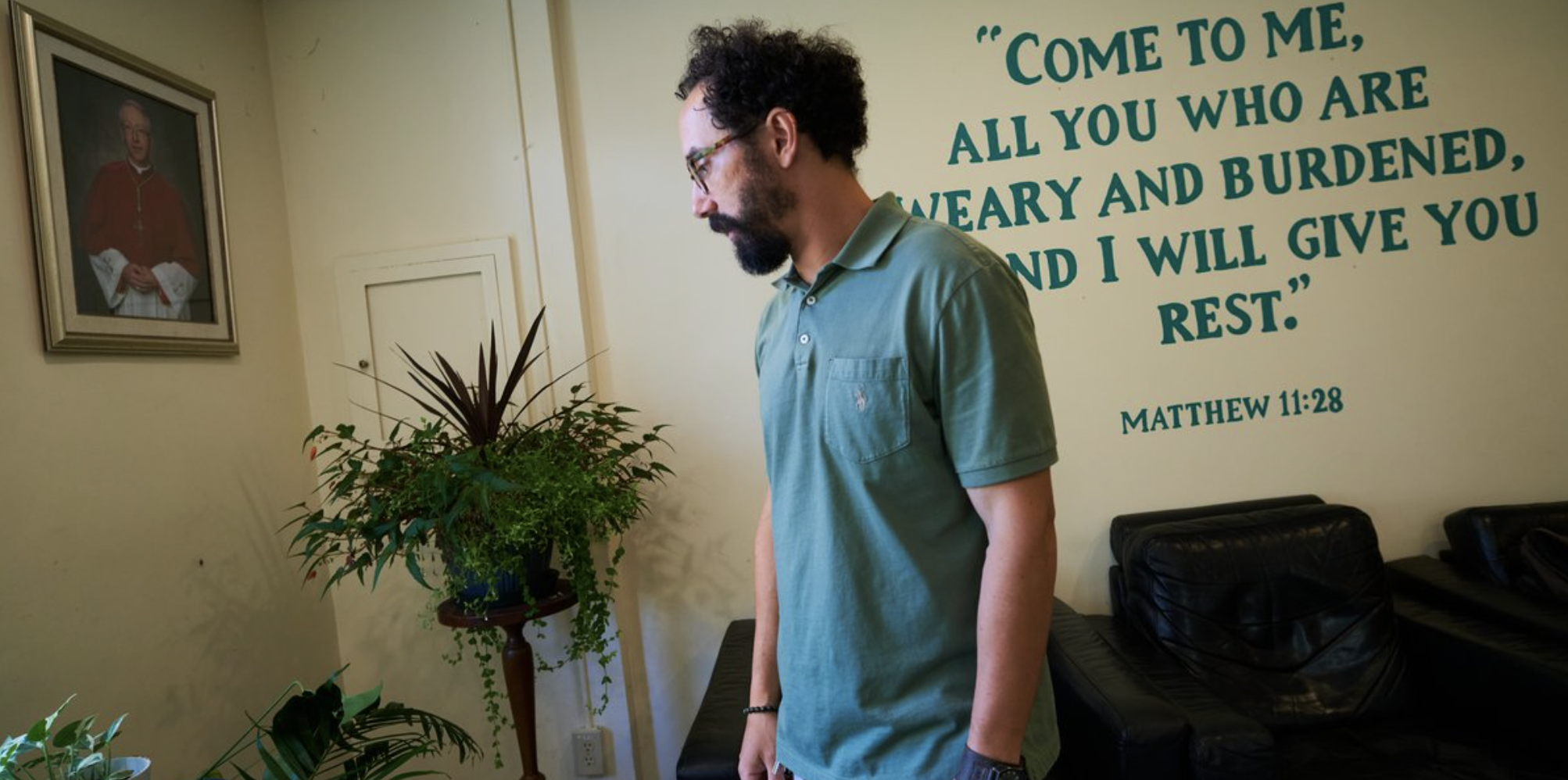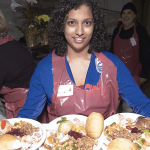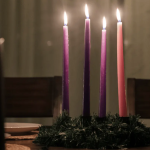When Justin Milad was confirmed in the Catholic Church last December, he didn’t expect that he would soon manage the downtown Catholic Charities Men’s Shelter. But the journey that brought him to his new managerial role, in his words, was “more providential than planned.”
That’s partly because his road to Catholicism has been long and winding, but also because he nearly recommended the job to his girlfriend a year earlier.
“She’s much better at operations than I am,” he said with a laugh. “We worked together at A&W, and she’s always had a heart for service.”
Milad’s background is in the fast-paced world of franchise restaurants. His family owns several A&W restaurants, and he has been in the business for most of his life. However, the restaurant industry was never his ultimate goal. Music tugged at him, too, and in January 2024 he released a folk-country album titled The Most Likes I Ever Got. Something deeper was stirring.
“I always had one foot in and one foot out of the business,” he said. “There was a pull toward responsibility and legacy in the family company. But I also had this artistic bent. I needed to explore both.”
In many ways, his attraction to the Men’s Shelter also illustrates this tension, and that internal conflict came to a head in a Vancouver International Airport food court. Milad was applying for jobs and considering his options — A&W being one — but something about the secular offerings just didn’t feel right.
“I was just sitting there asking God if this was really where I was supposed to be,” he said. “I prayed and told myself I’d apply to a few other jobs when I got home, and if anything came up, I’d take that as a sign.”
The shelter job, still posted a year later, was the first listing he revisited. This time, he applied.
He was nearly hired on the spot.
A convert from Protestantism, Milad’s path into the Church began years earlier while studying biblical studies at Trinity Western University in Langley.
“One of the big things for me was realizing that it wasn’t the Bible that assembled itself — it was the Church that gave us the canon,” he said. “That really highlighted the authority of tradition, and the Catholic Church holds that tradition in a way that’s deeply rooted.”
He says at first he was a “closet Catholic.” Drawn to Catholicism’s mysticism, devotional life, and broad vision of vocation, Milad began attending Mass with his girlfriend, a convert from Islam. The two eventually entered the Church together.
“There’s a richness in Catholicism that I never found in my previous tradition,” he said. “It’s deeply intellectual, but also deeply practical. It gives you a place to offer your life in service.”
That offering of service is reflected in his new job. “I always liked helping people — whether that was staff or guests in the restaurant world,” he said. “But here, I get to do that in a way that’s about restoring dignity and hope. That’s the Christian call.”
Milad sees the shelter’s mission as more than simply providing beds and meals. In terms of Catholic social teaching, it is recognizing the dignity of the human person. “The shelter is more than a place to sleep,” he said. “It’s a place where men can begin again.”
Milad wants to build on that foundation, saying “I also see how much more it could become.”
Although the shelter currently provides essential services such as hot meals, showers, a safe bed, and up to 90 days of shelter, Milad hopes to grow its “gateway services” — those supports that help men transition into stable housing, recovery programs, and employment.
Some plans are still just plans. “We do the essentials really well,” he said. “But a lot of the referrals we make are external (detox, job training, housing supports). I’d love to bring more of those in-house.”
His first major change has been to reduce initial stays to 30 days, but offer 30-day extensions tied to progress on personal goals like employment, sobriety, or housing applications. “It’s about creating momentum and accountability,” he said. “If someone’s showing initiative, we walk with them. We don’t cut them off at 90 days just because the clock ran out.”
For now, Milad is two months into the role and energized by what he sees. “Some of the men won’t get off the street — their mental health or addiction issues are too severe. But that doesn’t mean they don’t deserve dignity. We shelter them, we love them, we walk with them. That’s our job.”
Others, however, just need someone to believe in them and walk with them a little farther than most feel capable of.
“It’s hard work. It’s messy, but it’s sacred,” Milad said. “This place is a seed, and I think with God’s help it can grow into something even more beautiful.”




